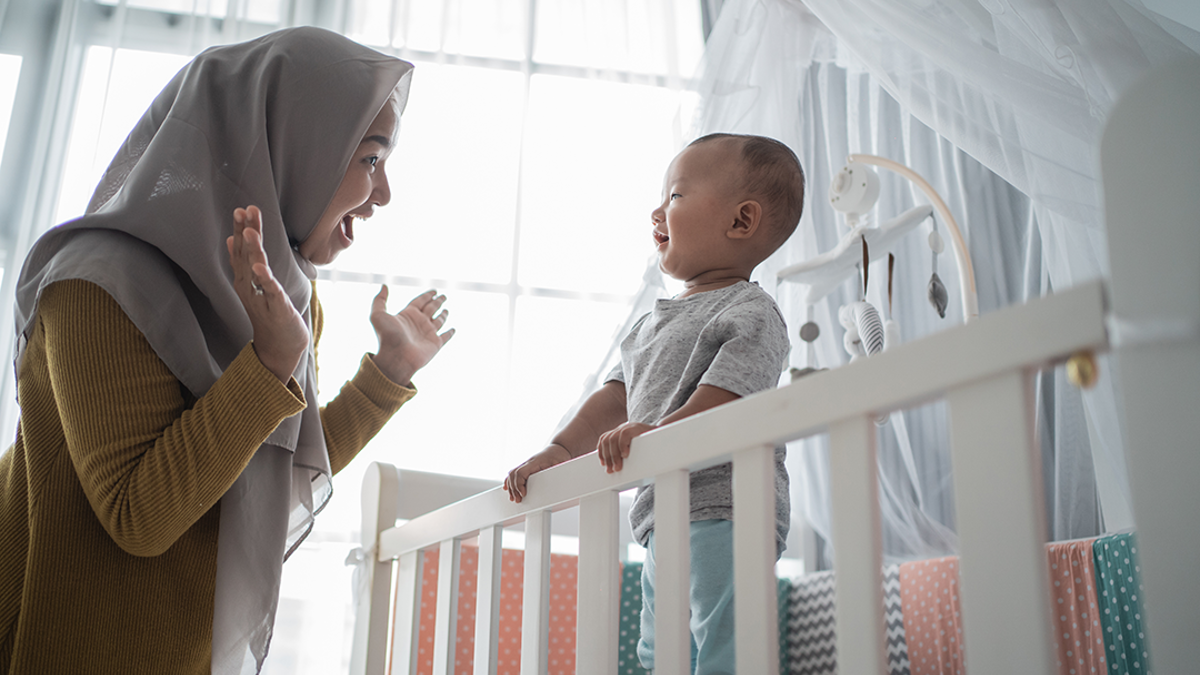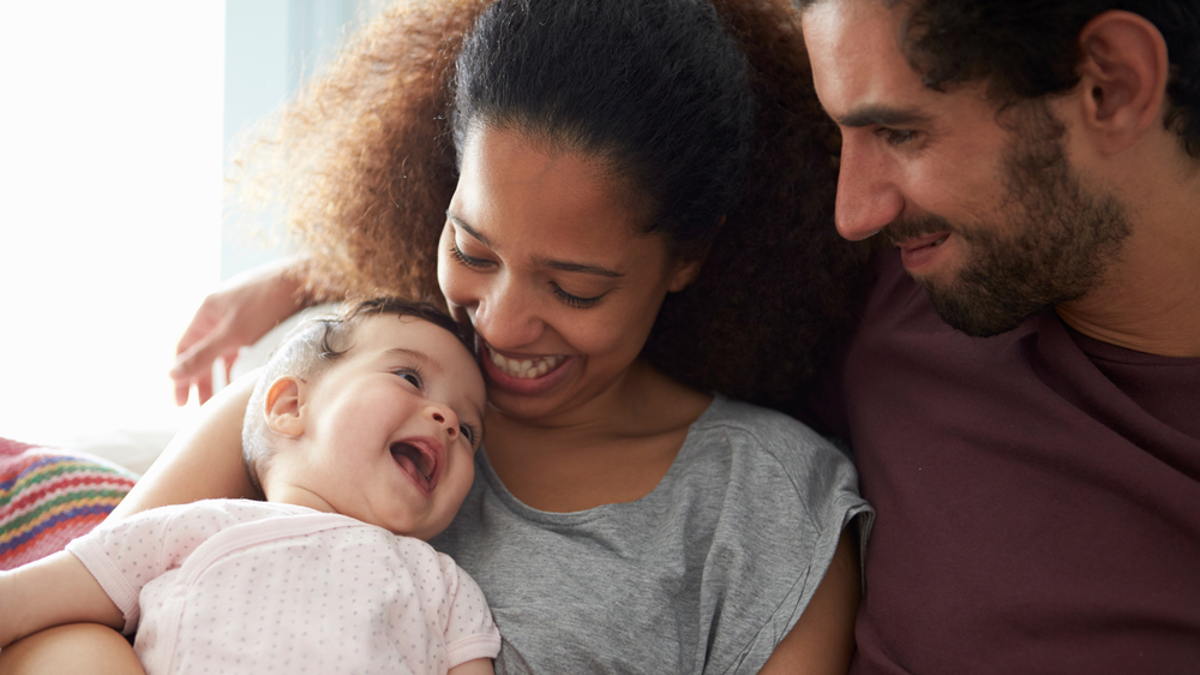Communicating with your baby
- 0-1 Years
- Child development and growing up
- Speech, language and communication

Babies can communicate from the moment they are born. As soon as they arrive, your baby is learning about speech, language and communication. When communicate with your baby, you are helping them learn to communicate. It's also important for you to understand how your baby is trying to communicate with you.
Explore the topics on this page:
Talking to your baby
It’s important to talk to your baby from their first day! Spend time with your baby and let them watch your face. Use your face by exaggerate your facial expressions. You can also vary voice by changing your pitch. These will help keep your baby interested.
Babies have very limited ways to communicate with you. Make sure your child knows you have understood their attempts to communicate with you by responding when they:
-
- cry
- point
- shout
- make sounds
Let your baby see that making sounds are fun by talking to your baby in lots of different situations. Smiling a lot as you talk will also encourage them to make sounds of their own.
Often early attempts at words by babies go unnoticed. This is because they don’t sound like the words they’re intended to be. Try to be aware of any attempt to say a word and give your baby encouragement. For example, if your child points at a cat and says “ta” you can say “Yes, it’s a cat!” in an excited manner.
For more tips on how to talk to your baby, visit the BBC’s Tiny Happy People page.
Encouraging your baby to notice things
It’s important to encourage your baby to pay attention to their surroundings. There are a variety of ways you can do this.
- Encouraging your child to notice when someone appears or disappears like “Where’s daddy?”
- Pointing to things and talking about them when you go places like “Wow, that’s a big tree!”
- Saying your child’s name to alert them to new people or things near them. An interesting face or object will encourage them to continue to look and learn.
- Talking to your child with simple language and repeating yourself a lot. You can do this whilst playing or sharing activities with them like blowing bubbles.

Eye-contact
Good eye contact can be important when socialising. You can encourage eye contact by holding objects your child is interested in at eye level. This encourages them to look at your face. For example, if your child wants you to blow bubbles – hold the pot at your eye level to help them look at you.
There are many different games and activities you can do with your child to encourage them to make eye contact such as:
- playing peek-a-boo or peep-bo games
- holding squeaky toys held near your face
- playing with puppets near your face, you can use the puppets to sing nursery rhymes and songs
- singing nursery rhymes face-to-face and pause on occasion to encourage your child to look at you
Do not force your child to look at you. Some children find eye contact uncomfortable.
Show your baby new sounds and music
Encourage your baby to listen to lots of different sounds. You can do this by playing with different noise-making things like rattles, drums or musical toys. Check to see if your baby will turn their head to look at them. If you baby isn't looking, you can encourage your baby to look by slowly bringing the noise-making things closer to them.
Your baby will also be more interested in what you are interested in. Make a show of being interested in the sound or object too. Dancing along to music or a musical toy will encourage your child to dance to the rhythm too.

Last reviewed: 1 November, 2023
